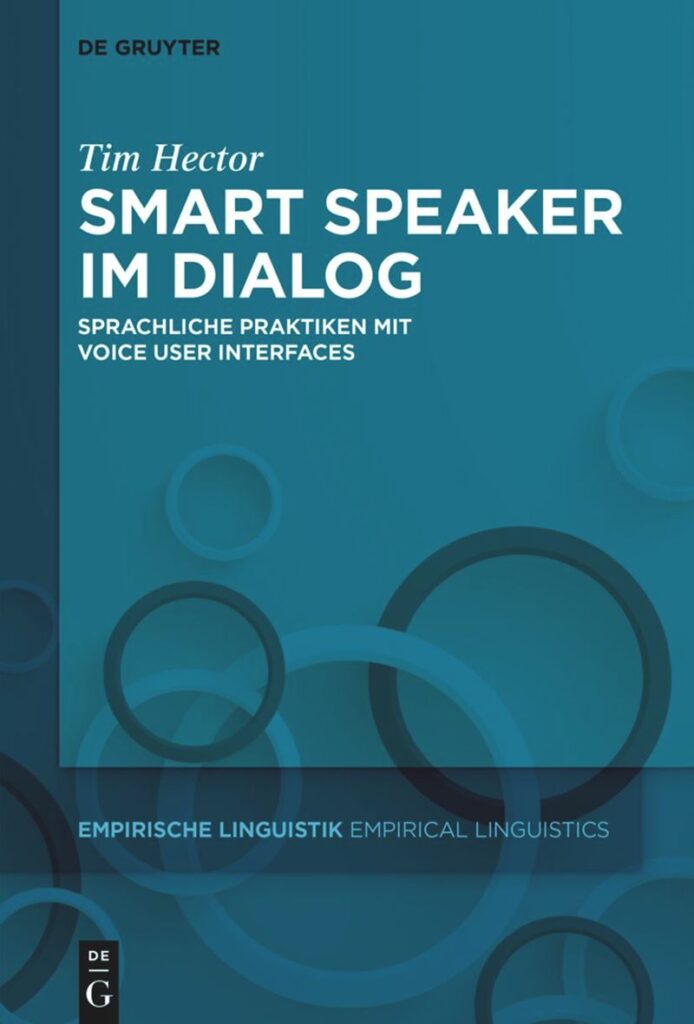New publication: Smart Speakers in Dialogue
Dissertation on linguistic practices with voice assistants from project B06 published
by Tim Hector (University of Siegen)
In the book series “Empirical Linguistics” at De Gruyter Brill, the dissertation by Tim Hector (project B06 Un/desired Observation in Interaction – Smart Environments, Language, Body, and Senses in Private Households) has been published as an open-access publication in German.

About Smart Speakers in Dialogue
The dissertation “Smart Speakers in Dialogue. Linguistic Practices with Voice User Interfaces” examines voice assistants from a linguistic perspective. The focus is on smart speakers such as “Alexa” or “Google Home.” These devices are voice-controlled and provide, among other things, music or weather information. The study investigates how dialogue with these devices is linguistically organized, what practices emerge, and how the devices are integrated into everyday life.
The work combines theoretical discussions on praxeology and domestication with an empirical analysis of audio and video recordings. The corpus includes situations of initial installation and everyday use. For audio recordings in everyday life, a specially developed device was used that automatically captures voice commands (Conditional Voice Recorder, see our CRC-Working Paper No. 23). Methodologically, the dissertation follows a qualitative research design and draws on principles of conversation analysis.
The analyses show for dyadic dialogues (i.e., one person and one device), that address terms such as “Alexa” are newly functionalized and that the course of conversations must follow strict sequential patterns. Practices from other conversation-analytic categories—such as turn-taking or repair—remain visible but are technically reshaped. New practices also emerge, such as deliberate interruptions (barge-ins).
In multi-party situations, smart speakers are sometimes framed linguistically as participants, sometimes as objects. Particularly noteworthy is a “formal-functional split”: utterances that appear to be addressed to devices often serve other purposes—such as humor, frustration management, or the domestication of resistant technology.
About the author
Tim Hector is a postdoctoral researcher in project B06: Un/desired Observation in Interaction – Smart Environments, Language, Body, and Senses in Private Households. He finished his PhD in Applied Linguistics in 2024 and conducts research in media and cultural linguistics, conversation analysis, and linguistic praxeology.